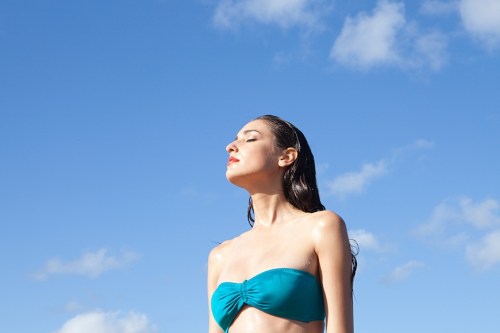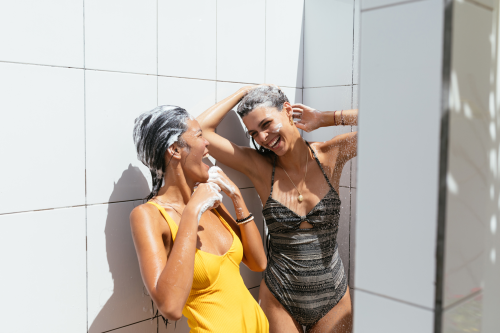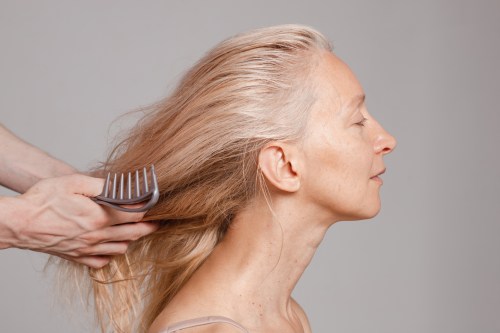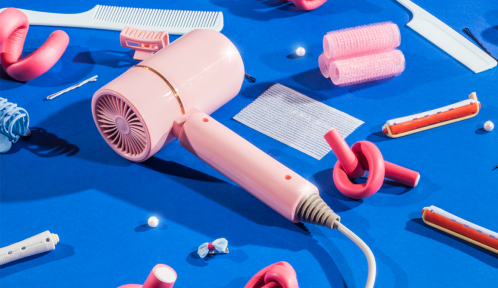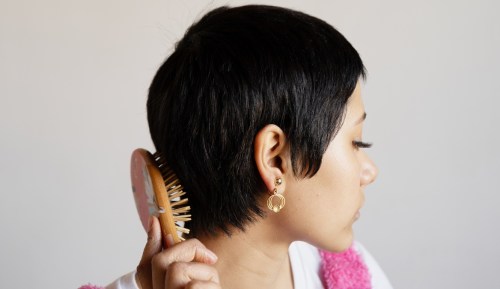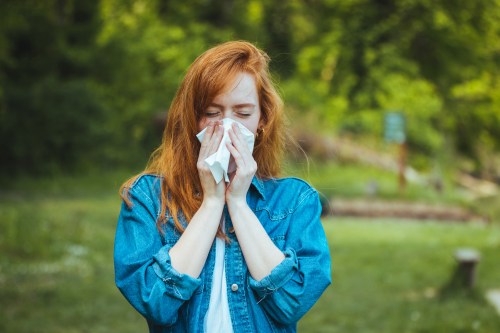If you’re taking full advantage of all summer has to offer—millennial-pink beaches, epic hotel pools, and all the hikes—odds are good you’re also putting your hair through the paces. Though you may spritz it with sea salt spray regularly for that beachy look, submerging it in the actual ocean is a different deal, as is soaking it in chlorine, or even sweating profusely. Should you then, in light of all of this activity, change up your shower regimen to include more or less shampoo and conditioner?
As it happens, the answer might just be yes! Of course, this is all wrapped with a giant caveat: Everyone is totally different, and because the amount of oil you produce, your hair texture, and your social calendar (which may or may not involve frolicking in the ocean) are all individual to you, you’ll have to do some “research” to figure out your perfect-hair-day recipe. As a start, I asked three different stylists to weigh in on best practices below. Here’s what they had to say.
Keep reading to find out how often you should be cleaning your hair this summer.

Eliut Rivera, owner and stylist at Eliut Salon
Rivera, who’s worked with stars such as Jennifer Lopez, says that the first factor to take into consideration is a conditional one: If you sweat a lot in the summertime (AKA you’re taking those long runs outdoors and into the sun), you should be washing your hair more frequently, up to twice a week. “If you must shower more frequently, use conditioner only to protect hair health,” he says. “The idea is to keep the scalp clean and free of bacteria without stripping the hair of natural oils that keep it healthy, soft, and beautiful.” That means: Make sure to only apply the soap to the roots, rather than the full length of the strand and apply conditioner only to the lengths and not near the roots.
Volume, adds Rivera, can also play a role in how often you should do a full wash this time of year, especially if you have fine hair (but a lot of it!), because the oil and sweat more easily slip down the strand and look grimy quicker. “If you have a lot of hair, you probably sweat more, so in that case you would need to use a light, clarifying shampoo at least every other day to avoid buildup,” he advises.
Strands that’ve been dyed, he says, requires special consideration as well: “Chlorine or sea water can oxidize the color more quickly,” he explains, noting that the same is true for UV rays. To help prevent this from happening, Rivera advises applying coconut oil to your hair prior to exposure (avoid the scalp and the roots), which will act as a protective buffer from these elements. Then, he says to pull it into a cap for swimming. After your dip, he says, immediately rinse the hair with clean water and wash with color-safe shampoo.
Kari Williams, PhD, trichologist and celebrity stylist
Dr. Williams, who’s styled celebs like Willow Smith and Ava Duvernay, tells me that a clean scalp and clean hair are part of healthy hygiene; however, she insists that exactly how often you shampoo is a personal decision based on your lifestyle and how oily your scalp gets.
Curly and coiled textures tend to not produce as much oil on the scalp, so she generally recommends washing these hair types twice a month, with some summer-specific caveats. “It’s necessary to gently cleanse the hair after swimming,” she says. “You may not need to use shampoo, but it’s important to rinse the hair or use a cleansing conditioner to remove any salt and chlorine from the hair strands.”
If you are really active, live in a hot or humid climate, or have a flaky-scalp condition, she says, you may need to up your shampoo sessions to once a week. “To prevent the hair from drying out, especially for curly and coiled hair types, you should deep condition your hair after every shampoo to replenish the moisture in your hair strands,” she adds.
Juli Phillips, stylist at Los Angeles-based Planet Salon
Phillips, meanwhile, generally recommends washing thinner strands every other day—unless you’re taking a dip. Then, she says, you’ll want to add a simple post-swim step into your weekly routine. “Rinse after to get rid of chlorine or salt,” she advises. If your scalp is drier and you don’t need to suds every other day, Phillips recommends dry brushing your scalp to remove buildup. “Clogged pores cause hair loss!” she cautions. When it comes to sweating, she likewise recommends just a rinse. “No need to shampoo every day,” she explains.
In addition to your regular washes and these activity-related rinses, Phillips says its important to do regular treatments and masks in the summer, especially if your hair is dyed blonde (a typically parching color molecule) or red (the quickest color molecule to leave the strand). “This will reduce fading and add moisture,” she explains. Plus, they’re easy to work into your summer fun—you can casually multi-task by masking while you sweat.
Need more hair help? This is how often you should trim it if you’re trying to grow it out. Plus, get tips for parting your hair or cutting bangs depending on your face shape.
Sign Up for Our Daily Newsletter
Get all the latest in wellness, trends, food, fitness, beauty, and more delivered right to your inbox.
Got it, you've been added to our email list.
